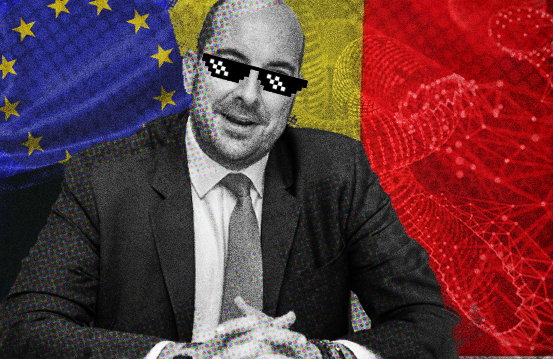
Belgium has taken the lead in the development of a blockchain infrastructure project within the European Union. As the country prepares to assume the presidency of the Council of the European Union in early 2024, it is focusing on advancing a public-sector blockchain initiative.
This project, now called Europeum, aims to enhance digital infrastructure and governance across the EU. It promises to streamline public administration tasks and represent a broader commitment to digital innovation and security.
The initiative builds on the European Blockchain Services Infrastructure (EBSI) project, launched by the European Commission in 2018 with the European Blockchain Partnership, which includes the 27 EU member states along with Norway and Liechtenstein.
Europeum, which would be based in Belgium, has received commitments amounting to €1 million so far, from Italy, Croatia, Poland, Portugal, Slovenia, Luxembourg, and Romania.
Under the guidance of Mathieu Michel, Belgium's Minister for Digitization, the Europeum project aims to develop a transnational blockchain infrastructure. This system will securely store and manage official documents like driving licenses and property titles.
Michel told Science Business on Tuesday that blockchain-based applications could benefit from being built on a common infrastructure, but that this blockchain network should be managed by a government.
"That is a technical project. If we want to build a common infrastructure, it has to become a European project and a political project."
Belgium's efforts signal a commitment to digital innovation and aim to position the EU at the forefront of global digital governance. By accelerating the development of Europeum, Belgium seeks to set a standard for blockchain technology in public administration, promoting a digitally interconnected and secure Europe.
Michel also discussed a public verification system to which users provide their ID but can then remain anonymous. However, social media users could, for example, filter content from verified profiles only, to tackle fake profiles and promote a more responsible internet.
This approach, which could also be applied to e-commerce and similar platforms, is part of a broader shift in digital responsibility: starting with the anonymity of the internet, evolving through the accountability of platforms under the Digital Markets Act, and now focusing on the obligations of individual users.
Europeum would be structured under the European Digital Infrastructure Consortium (EDIC). Established in December 2022, EDIC is a legal framework designed to facilitate collaborative, multi-country projects among member states. This approach is modeled on the European Research Infrastructure Consortium (ERIC), in which member states pool resources to construct and operate large-scale scientific facilities.
Michel anticipates that Europeum could secure additional funding from the European Commission under the EDIC framework. EDIC is designed to support the EU's Digital Decade 2030 objectives and projects are established by the Commission in response to applications from at least three member states. These member states then play a crucial role in governing the projects, which can be based on new or existing infrastructure.
The success of this project could encourage countries outside of the bloc to adopt similar technologies, enhancing governance and public service delivery.

